WMI's Kenya Loan Program Operations
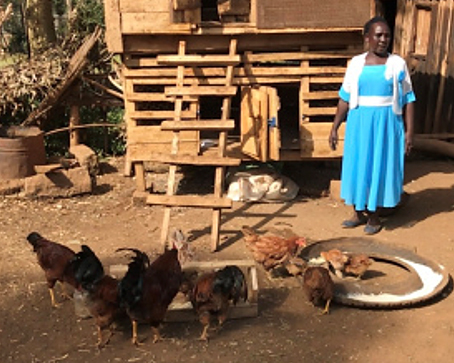
With spectacular wildlife and world-renown national parks, Kenya has the largest economy in East and Central Africa. Nairobi is a bustling capital city of skyscrapers and international businesses. Yet it is a country with extreme income inequality and village-women have been largely left out of the country's economic development.
WMI started loan hubs in Kenya in 2011 to combat the financial isolation and discrimination experienced by rural women in the western and central regions. Partnering with local women's groups that operate the loan program on a day-to-day basis, WMI borrowers have experienced significant improvements in their household living standards and their personal/business skills.
WMI works in two different regions of the country.
Central Kenya
Meru County and Laikipia County
Partnering with women's groups that work with the community outreach team at Lewa Wildlife Conservancy, WMI is helping expand the pioneering concept of community conservation that was so successfully introduced by Lewa to the villages surrounding the Conservancy. Starting in Ntumburi and Ngarendare villages in 2011, WMI's experienced Buyobo team travelled from Uganda to train the first borrowers here. Joining forces with Lewa three years later, we now regularly serve over 2,000 businesswomen in this region.
This is a very rural region with limited resources and infrastructure. Poverty in this area is exacerbated by a lack of sufficient water and an increasingly dry climate. This makes farming difficult and greatly affects the health of villagers. Along with malnourishment, diseases such as malaria, typhoid, and HIV/AIDS are common.
Many of the people in this central area are mainly Maasai and Samburu, with a traditionally semi-nomadic lifestyle, revolving around cattle-raising as a source of wealth and food. The Meru people who also live here are more traditionally engaged in farming. The dominant social structure is patriarchal, with men making the major decisions. Men are born to be warriors and women take on most of the household responsibilities. With the WMI loan program we see these roles changing gradually. Women are becoming more independent and husbands are assisting their wives with their businesses as well as with household chores.
"Sometimes they call us women the same word that they use for donkey. We are seen as work animals. A woman's life can be so miserable. You are expected only to have children and keep the animals. Your husband hardly allows you to leave the compound. You know life to only be hard work and no reward. I saw my mother live like a slave and my older sisters and I knew I would never allow myself to be put in that position." - Pamela Kilua (WMI loan hub founding coordinator)
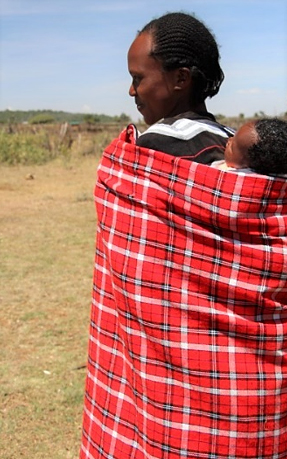
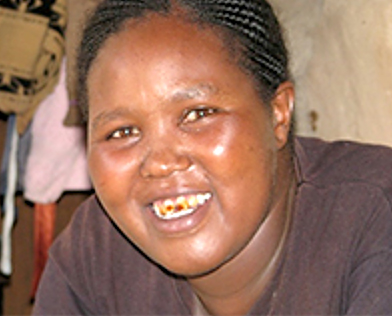
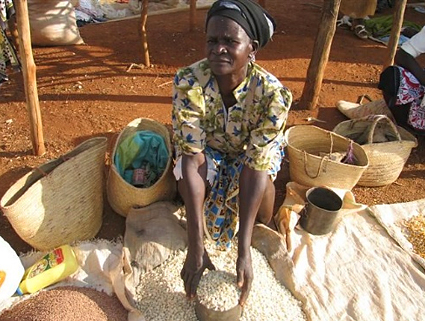
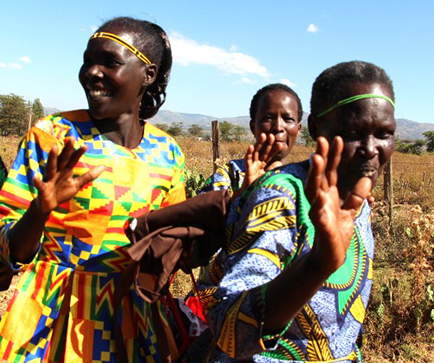
Western Kenya
Uasin Gishu District (Eldoret District)
Located on the Uasin Gishu Plateau in western Kenya, this region was transferred from Uganda to Kenya in 1902. It sits at an altitude of 7,000 ft on a plateau overlooking the Rift Valley, about a six hour drive from Nairobi. The proximity to Uganda allowed the founding loan hub members, who lived near Eldoret city, to travel to WMI headquarters in Buyobo, Uganda (an eight hour journey by bus) to be interviewed, vetted, and trained in 2022 in order to prepare to launch the newest WMI loan hub there in the summer of that year.
Everlyne Koech, a mother of five, a farmer and teacher, with a Master's Degree in Agricultural Resources, had been trying for years to develop local workshops and marketing platforms to link village women raising small-scale crops to better outlets to sell their produce. A network of rural women entrepreneurs was taking shape but there were no local resources to fund business training or capital for expansion. Everlyne contacted hundreds of government programs, foundations and NGOs on behalf of the village women she worked with but to no avail. She contacted WMI in late 2021 and as a dialogue developed, we realized we had connected with a local activist who was passionate about supporting village businesswomen. The Northern Rift Peculiar Women Association (NORIPEWO) was born. It issued its first WMI loans in July 2022 and has been growing steadily ever since.
Home to high-altitude training camps for athletes, the Uasin Gishu District main industries are agriculture and fishing. It is a fast-growing area and the population increases have stressed local water resources making efficient water management techniques crucial for the small scale women farmers who comprise the majority of loan program members. Climate change is increasing desertification of the area and village women are learning how to switch to higher yield, drought resistant crops. The women's small incomes are transforming households and local government leaders have commented on the reduction in domestic violence which was brought about by financial stress on poor, rural families.


